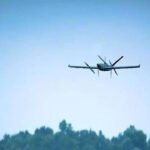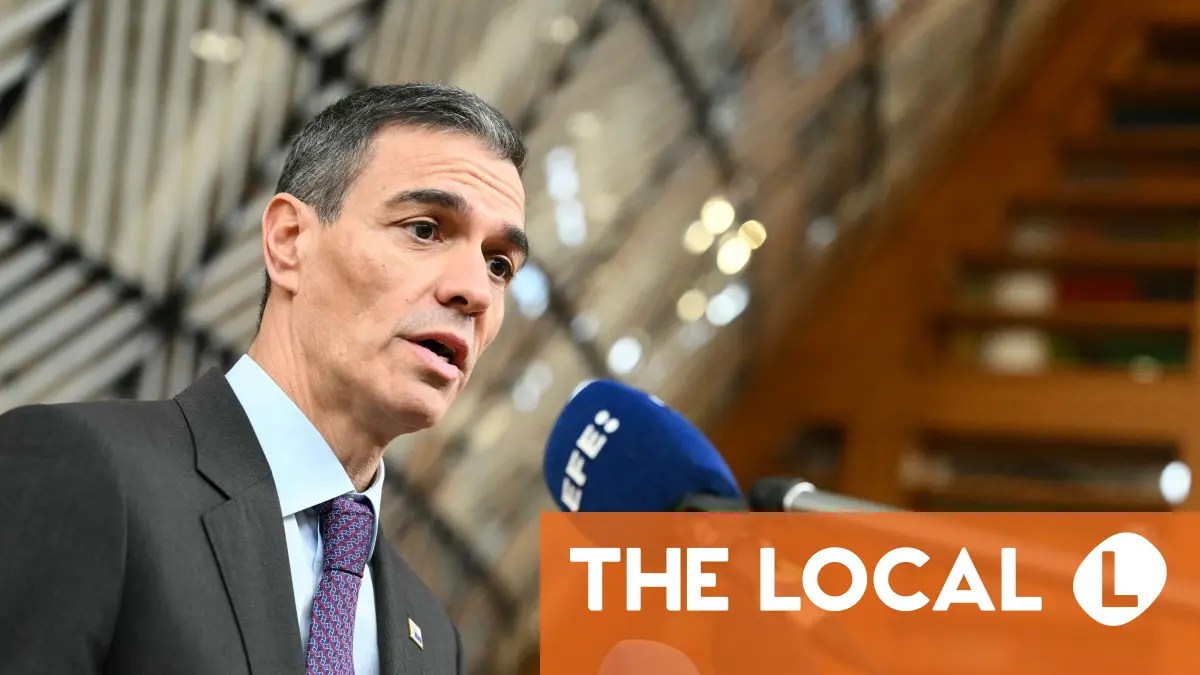Shorouk Express

Andrei Kurkov (b. 1961) is one of Ukraine’s most prolific and eclectic writers. He has covered several themes linked to Ukraine’s recent history – especially after the 2004 Orange revolution, as well as several thriller stories, some almost surrealistic, set in the years following the collapse of the Soviet Union.His most famous novel is Death and the Penguin (Vintage Publishing, 2002) . He wrote the essays Ukraine Diaries (Vintage Publishing, 2014) Diary of an Invasion (Deep Vellum, 2023) and Our daily war (Open Border Press, 2024). This interview is an edited transcript of the conversation he had with Italian journalist Andrea Pipino at the 2024 Internazionale a Ferrara festival.
Andrea Pipino: Since the beginning of the century, you have gradually been acting as an ambassador of Ukrainian literature abroad. What makes it so specific? Why in your opinion has this happened, especially considering what has happened to Ukraine after the Russian invasion of 2014
Andrei Kurkov: I actually started in 1999. At that time there was no knowledge of Ukraine. People only knew about Chernobyl and the local mafia. So I think I did hundreds and hundreds of different book presentations and discussions. Since then I’ve got used to talking more about Ukraine than about my books. Because if you don’t understand Ukraine, you probably won’t understand my books. Even though I’m trying to write universal stories that can be understood by any reader.
The problem with contemporary Ukrainian literature is that it is introverted. It is aimed at people who already know a lot about Ukraine. At the same time, Ukrainians have always been angry that the world doesn’t know about them, doesn’t understand the difference between Russians and Ukrainians.
Interesting article?
It was made possible by Voxeurop’s community. High-quality reporting and translation comes at a cost. To continue producing independent journalism, we need your support.
Subscribe or Donate
In Western Europe, we often tend to think that the part of the continent that used to be part of the Soviet Union is pretty much “Russia”, but it is definitely not: Ukraine, the Baltic countries and even the Caucasian republics such as Georgia have a very strong national identity. Has the situation in recent years – especially since the full-scale invasion of Ukraine – changed this view?
Unfortunately, we needed a war in Ukraine to show that Ukraine is different from Russia, to the point that Russia is trying to destroy it because of that very difference. Interestingly, the Russian aggression in Georgia has not created any cultural interest in Georgia. It hasn’t affected the translation of Georgian literature or the popularity of Georgian films.
I would like to mention a country from the former Soviet Union, which is one of the most interesting countries, and thank God there was no war there, but the result is that nobody knows about it: Lithuania. If you want to find a magic kingdom, a tiny magic kingdom with the same population as we have in Kyiv, with four different regions, with an incredible history – the Lithuanian kingdom was the biggest European state in the 14th century. Today it is still an incredible country, but it remains largely unknown, as does Lithuanian literature and culture.
The majority of Russians, including the elite, have long been unwilling or unable to accept that the former Soviet republics are countries with their own history, language and identity. Is this still the case?
Vladimir Putin, as he has repeated many times, believed that his greatest personal drama was the collapse of the Soviet Union, which means that his dream was the resurrection of the Soviet Union or the post-Soviet Russian Empire. I would not be so optimistic as to say that Putin is not planning to attack the Baltic states.
Russian imperial ambitions for Ukraine date back to the early 18th century. In 1709 there was the famous Battle of Poltava in Ukraine, which pitted Peter the Great and his army against the Ukrainian army of Hetman Mazeppa and the Swedish army of Charles XII. Peter the Great defeated the Ukrainian army and the Ukrainian Cossacks, and Hetman Mazeppa fled to Bessarabia, in present-day Moldova and Romania. This was probably the first major battle in which Russia seized virtually all of Ukraine. Eleven years later, Peter the Great signed the first decree against Ukrainian identity. It was a decree banning the publication of religious texts in Ukrainian. This decree also included a clause to remove all religious books written in Ukrainian from the churches.
Between 1720 and 1917 there were more than 40 decrees signed by different Russian tsars to destroy the Ukrainian language, culture and identity. So today’s war is nothing new. The same thing happened in Lithuania: Lithuanians were not forbidden to use their language, but they were forbidden to use the Latin alphabet. So the Lithuanian language had to be written and printed in Cyrillic, by decision of Tsar Alexander II.
Have you always been aware of the uniqueness of Ukrainian culture? You were born in what was then called Leningrad – now it’s St Petersburg – and then you moved to Kiev.
I was born in Russia – the Soviet Union, actually – but I can’t be sure if I’m Russian or Ukrainian. I can’t be 100% sure because my father and grandfather were Don Cossacks. Many Don Cossacks are actually of Ukrainian origin, because Empress Catherine the Great banned the Ukrainian Cossack hetmanate and told the Cossacks that if they wanted to keep their weapons, their guns, they had to settle near the Caucasus and defend that border for the Russian Empire.
When the Soviet Union collapsed in 1991, I was very happy. Of course, I was shocked by these events, but I was less shocked than my parents, who couldn’t imagine life outside the Soviet Union or without it. I was very happy because I thought that now that Ukraine had become independent, it would be much easier to build an independent European state. That year I became politically Ukrainian, which at that time meant belonging to the more active part of society, where the ethnic Ukrainian group was dominant.
‘When the Soviet Union collapsed in 1991, I was very happy because I thought that now that Ukraine had become independent, it would be much easier to build an independent European state’
Since 1991, every citizen of Ukraine is Ukrainian, and it doesn’t matter if he or she is of Crimean Tatar, Hungarian, Russian or Moldovan origin. We are Ukrainian citizens and that is my identity. My mother tongue is Russian. I learnt Ukrainian when I was 14, in a Soviet school. Because I was curious, I couldn’t understand why the republic was called Ukraine and nobody spoke Ukrainian in Kiyv. At school I had only one friend from a Ukrainian-speaking family.
After university I worked as an editor, editing novels translated from foreign languages into Ukrainian. I myself write fiction in Russian, non-fiction in Russian, Ukrainian and English, and children’s books, now mostly in Ukrainian.
Language has become a highly sensitive issue in Ukraine, a country where people spoke indifferently in both languages until the Russian invasion. This is no longer the case: many Russian-speaking Ukrainians have started to learn Ukrainian and refuse to speak Russian. Was Ukrainian ever a marker of national identity before the war? And does speaking Ukrainian today mean you are a hardcore nationalist?
When I was a student or a schoolboy, if someone spoke Ukrainian in Kiyv, you would think that he or she was either a peasant or a nationalist. And that was actually the attitude of the Communist Party of Ukraine: within the party, of course, there were Ukrainian speakers who were communists, but they were also very good Russian speakers. The political system in Ukraine is quite anarchic because of the history of the country, which, unlike most European countries, has never had a royal family but mostly was part of other empires and kingdoms.
🎙 Join us for a live online conversation with Andrei Kurkov on 18 February at 12pm CET. Register here
When Ukraine was an independent territory ruled by the Cossacks before 1654, the Cossacks elected the Hetman. The Hetman was the head of the army and the head of the territory. Even then, the Ukrainians were politically independent and very strong-willed, and I suppose everyone spoke Ukrainian. But in 1654 the Ukrainian Hetman Bohdan Khmelnytsky asked the Russian Tsar for help in the war against Poland. That was the beginning of the end of Ukrainian independence.
Later, the Kremlin issued more than 40 decrees to tame Ukrainian identity, and it was only after 1991 that the Ukrainian language began to return to the Ukrainian territories from which it had been removed by Russia.
Unlike Russia, which has always been a monarchy and where people love the Tsar and expect him to organise their lives, Ukraine has a long tradition of a kind of democracy. As a result, we now have more than 300 political parties, because every Ukrainian who gets into politics wants to create his own party. These parties are not ideological, they represent interest groups or personalities. When Ukraine regained its independence, politicians had to divide society in order to get their share of the electorate. The easiest division was between Russian and Ukrainian speakers.
So the most active parties in the east promised voters to make Russian the second official language, while the active parties in the west promised voters to ban Russian and make Ukrainian the only language in Ukraine. Of course, Russia helped the pro-Russian parties. And Russia was actually trying to force Ukrainian leaders and politicians to accept Russian as a second official language, because then it would have been much easier to integrate Ukraine back into the Russian empire, which is what happened in Belarus.
In Belarus, only 25% of people speak Belarussian, but most writers now write in Russian. Politically and culturally active writers and poets who used to write in Belarusian are now refugees in Lithuania and Poland since they are considered dangerous by Alexander Lukashenka’s regime.
And so, in fact, since 2005, Russia has repeatedly said that it wants to defend Russian speakers in Ukraine. The result of this defence is that many Russian-speaking Ukrainians have been killed by Russians in Donbass, in Mariupol, Odessa, Kharkiv, Bucha and also in Kiev.
‘The Ukrainian language today is definitely a marker of Ukrainian identity, or at least Ukrainian patriotism’
Since the 16th century, the Russian language has been used as an instrument to change the individualistic mentality of Ukrainians and make them Russians. Lenin never trusted Ukrainians and never visited Kiyv in his life, although his sister lived there. The same individualistic mentality prevented Ukrainians from joining the collective farms in the 1920s, which led the Soviets to deport Ukrainian peasants en masse to Siberia and create the famine of 1932-33 that killed at least 3.5 million Ukrainians.
In Soviet times, this mentality survived only in western Ukraine, which only became part of the Soviet Union after the Second World War. Before that it was part of Poland.
So I think it is fair to say that the Ukrainian language today is definitely a marker of Ukrainian identity, or at least Ukrainian patriotism. Of course, people are free to speak other languages at home, on the street, etc. – be it Tatar, Hungarian, Gagauz, etc. – but in official situations you are expected to speak only Ukrainian. The same goes for university: you are expected to give lectures in Ukrainian – a language that Catherine the Great banned from universities in 1763.
Do you think that after the war Ukraine can still be a multilingual country in some way?
The minority languages will be spoken and used without any problems, except for Russian. The society is very traumatised by the war; there are graves from the war in every village, in every town. At the moment, anything Russian is hated and unacceptable; bookshops refuse to sell books in Russian: Ukrainians have also stopped watching Russian YouTube and listening to Russian rock and classical music.
When I was 11 years old, I was asked at school whether I wanted to learn English as a foreign language or German. It was 1972 and I remember saying “I will never learn German because the Germans killed my grandfather”. I learned German when I was 37 years old. So I think you cannot just say that a certain language will never be spoken, because things change. I have a lot of German friends now and I travel to Germany a lot. But we shouldn’t expect anything positive to happen to Russian culture, Russian language, Russian literature in Ukraine in the next 20 years.
This attitude is reflected in the unwillingness of some Ukrainians to confront and cooperate with the Russian opposition. This is a sensitive issue on which Ukrainian civil society is divided. What is your position?
At the moment, 99% of Ukrainian intellectuals think that you shouldn’t be on the same stage with any Russian, even if they are anti-Putin. In the last three years I have held two public events with writers and journalists of Russian origin. Mikhail Shishkin from Switzerland, whom I have known for many years, and a year ago in Canada with Masha Gessen, who emigrated from Russia to the United States as a child at the age of eight. Because of the public event with Masha Gessen, I was cancelled in Ukraine. So I know how it feels.
I think you should look for those in the Russian opposition who are really capable of influencing Russian society. And you should talk to them. But again, 99% of Ukrainian intellectuals would say that this is treason and they will never allow it.
You explained that Ukrainians have always had a defiant attitude towards power and the state, which could explain the regular revolts against their rulers, not least the two most recent revolutions: the Orange Revolution of 2004-05, which brought the pro-Western Viktor Yushchenko to power, and the Euromaidan of 2013-14, which overthrew the pro-Russian president Viktor Yanukovych. Where does this come from?
There is a difference in mentality: for Russians, stability is more important than freedom.
In the 22 years of Putin’s rule, Russians gave up their freedoms to live in a stable society, to be passive, to be promised high salaries and high incomes. For Ukrainians, freedom is more important than stability. Ukraine has never been a stable country, except for a few years in the Soviet Union.
And for Ukrainians, political freedom, political expression, is more important than stability or income. So they can risk peace in society by standing up for their ideas to the end, as happened in the Orange Revolution and Euromaidan.
Many of your books are set in periods of crisis and chaos, such as the 1990s after the collapse of the Soviet Union. Those years were marked by poverty and the crisis of the political system – two things that Russia and Ukraine, as well as many other countries of the Soviet bloc, had in common – and led to the revanchist mentality that shaped Putin’s regime. Is it true that the resentments accumulated in those years fuelled a nationalist, chauvinist and anti-Western attitude in Russian public opinion? If this happened in Russia, why did it not happen in Ukraine?
Russia and Ukraine took different paths after 1995-96. Before that, they both survived in a kind of criminal crisis: the social structure disappeared, people didn’t have money, the police didn’t want to work and were replaced by the mafia. So if you had a problem, you would not go to the police. You would go to the local mafia boss, explain what had happened and he would try to help you if he thought you were right.
But at the same time, of course, it was a time of wild capitalism. People were taking risks to get rich. I mean, some people, ex-communists, were already rich, so they tried to get rich legally. In the Soviet Union there was the American dream and everybody just wanted to get rich. When the Soviet Union collapsed, the Russians still had this American dream, whereas in Ukraine they had a European dream. Because people thought that Europe is actually stable and that we want to have a stable country without corruption, where the police work and so on. And that’s why there were no anti-Western feelings in Ukraine. Ukraine was already in the West. A lot of people in Russia were suffering because of the new oligarchs. And then the Russian Orthodox clergy worked very hard to create anti-Western, anti-European feelings. And they succeeded.
‘When the Soviet Union collapsed, the Russians still had this American dream, whereas in Ukraine they had a European dream’
They created a kind of fundamentalist Russian Orthodox Church, supported by the state, which in turn supported the state. The church, which in Soviet times was linked to the KGB, was now linked to the FSB, its direct successor. Both have created this chauvinistic society, telling Russians that they are the most spiritual and moral people, while everyone else around Russia is gay, homosexual, immoral, corrupt, etc. We did not have that in Ukraine.
In Ukraine you cannot impose your political views on a mass of people, because everyone has their own ideas. It’s a different mentality.
When the full-scale invasion began, you and your family left Kiyv for Uzhgorod, and since then you’ve been travelling back and forth from Kiyv to Western countries to give lectures and speeches. Have you been able to continue writing during this time? And if so, has anything changed in your approach to writing? Did you ever think about stopping writing your novels in Russian?
I continued to write because my English publisher asked me to write a third documentary book about what is happening in Ukraine now. As for the Russian language, I have written non-fiction in Ukrainian and English, but I decided to stay with Russian for my fiction because it is my mother tongue. To write literary texts, one would need a much better knowledge of the language than my knowledge of Ukrainian. I know that many Ukrainian intellectuals disapproved of me and tried to force me to say that I would never write in Russian again.
One of the best Russian-language Ukrainian writers, Volodymyr Rafeienko, is from Donetsk [in the Russian-occupied part of Ukraine]. When the Russians came, he lost his home and his job. He moved to the Kiyv region, to the house of the Ukrainian-language writer Andriy Bondar near Bucha, where he was almost killed by the Russians during the occupation. Then he decided that he would never write a word in Russian again, and he started writing in Ukrainian, and his Ukrainian-speaking friends edit his texts in Ukrainian. So I suppose he will never go back to Russian. Maybe I would do the same if I had the same experience as him.
Speaking of your literary style, you have a particular penchant for black humour and atmospheres reminiscent of Gogol and perhaps Bulgakov. Do you place yourself among such great Ukrainian writers, and what is your relationship to the great names of truly Russian literature, like Tolstoy, Dostoyevsky, the more mystical ones?
I feel a little sorry when Bulgakov is called “anti-Ukrainian”. He was a typical product of his time. Some of his characters were indeed against Ukrainian independence, and I guess that is because he himself was a representative of the Russian-speaking bourgeois elite of Kyiv. But if he was not born in Kyiv, he wouldn’t have become such a great magical writer. Speaking of Gogol… Gogol wrote in Russian when it was forbidden to write in Ukrainian. But he introduced tens and hundreds of Ukrainian words into Russian literature. He created the fashion for everything Ukrainian in St Petersburg. Thanks to Gogol, rich people in St. Petersburg wanted Ukrainian cooks, Ukrainian servants. They bought Ukrainian folk costumes, embroidered shirts and so on. And that is why, even today, Russians cannot imagine the Russian Empire without Ukraine.
So in a way he is partly to blame for today’s war. I have never loved Dostoyevsky and Tolstoy. I mean, Tolstoy was always boring to me. And Dostoyevsky was psychologically unstable, and he is also responsible for creating this cult of the Russian soul and the idea that you cannot change something that is already happening and is given to you by God. So, I mean, Russian passivity comes from crime and punishment – I mean, in fact, in crime and punishment there is no punishment for the crime: in Dostoevsky’s Russian philosophy, the punishment is within you. You are not punished by society. You are not punished by the court. And at the same time it’s like your destiny. If you have to kill someone, you have to kill someone, which is what the Russian army is doing in Ukraine now. I don’t think they read Dostoyevsky.
So my style is, I would say, a mosaic of things. The main ingredient is black humour. And that’s because I was born an optimist, and now I consider myself a black optimist – that’s someone who knows that everything will turn out all right, but isn’t sure if he’ll be alive when it does.
Where does Ukrainian society find the capacity for resistance that allows people to try to live a normal life? Is it possible to face the wounds and traumas of war collectively?
The war started in February 2014, which means that Ukrainian children born after that year have never lived in a peaceful Ukraine. Of course, from 2022 the situation deteriorated, and since then children are used to sleeping in metro stations, in bomb shelters, not going to school, only doing online lessons. And I think Ukrainian society will pay a high price for this war in terms of education. The same goes for universities. Society is definitely traumatised and radicalised. At the same time, people are trying to live as they did before the war. The main difference is that you cannot sleep. If you live in a big city, you can’t sleep at night because there are sirens from 11 pm to 9 am; there are regular explosions and the anti-aircraft guns go off. We don’t sleep in Kyiv. We regularly go out into the corridor to stay away from the windows. When you see people in the cafes in the morning, almost all of them have red eyes and tired faces. But they try to smile because there is a kind of macho behaviour. If you ask someone, “How are you?”, a lot of people would say, “I’m fine. I’m fine”. But they wouldn’t tell you how they really feel. Psychologically, it is very exhausting.
Ukraine today is very different from Ukraine in 2021, because we have up to 7 million refugees living abroad. More than 400,000 Ukrainian children are attending schools elsewhere in Europe. I don’t think many of them will come back until they graduate, or if they come back at all. We have about 6 million internally displaced people whose homes have been destroyed by Russian bombs and rockets. And probably half of Ukraine still lives in their own flats and houses, like us in Kyiv.
🤝 This article is published within the Come Together collaborative project














